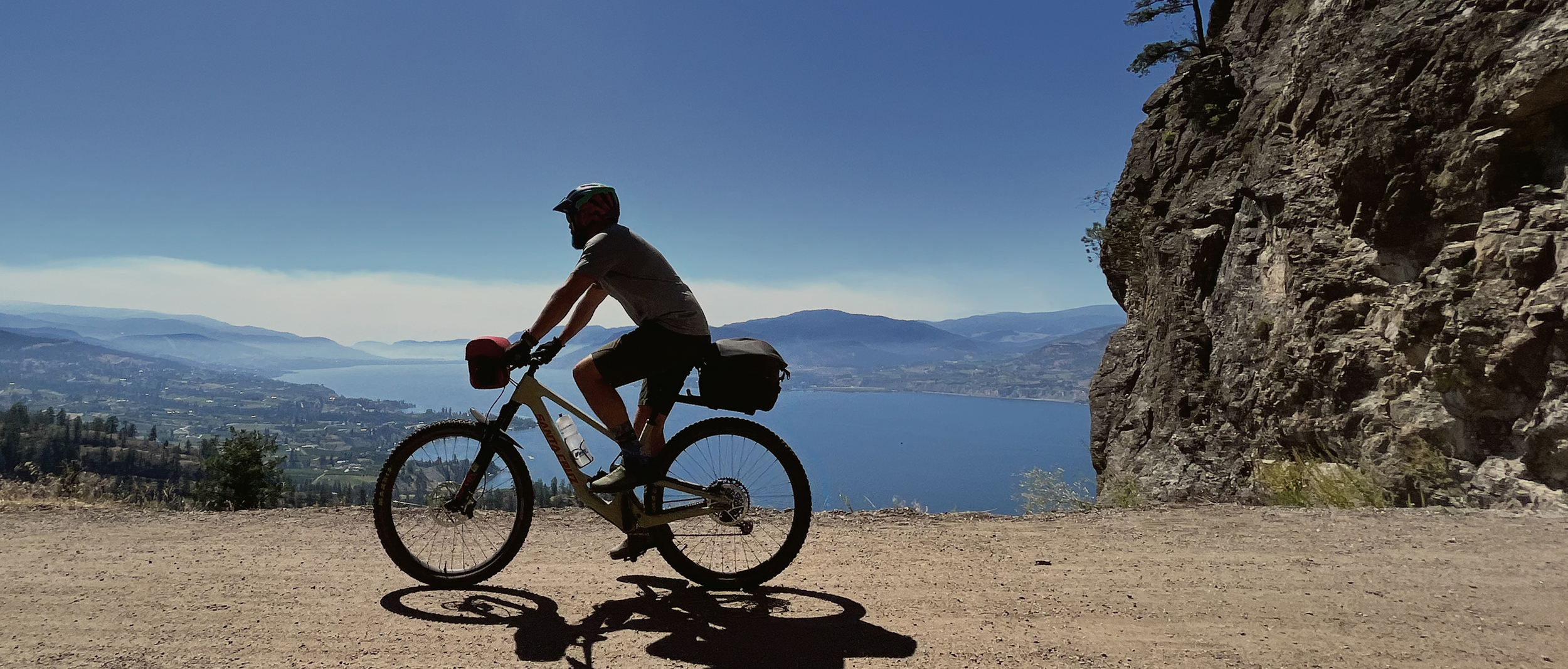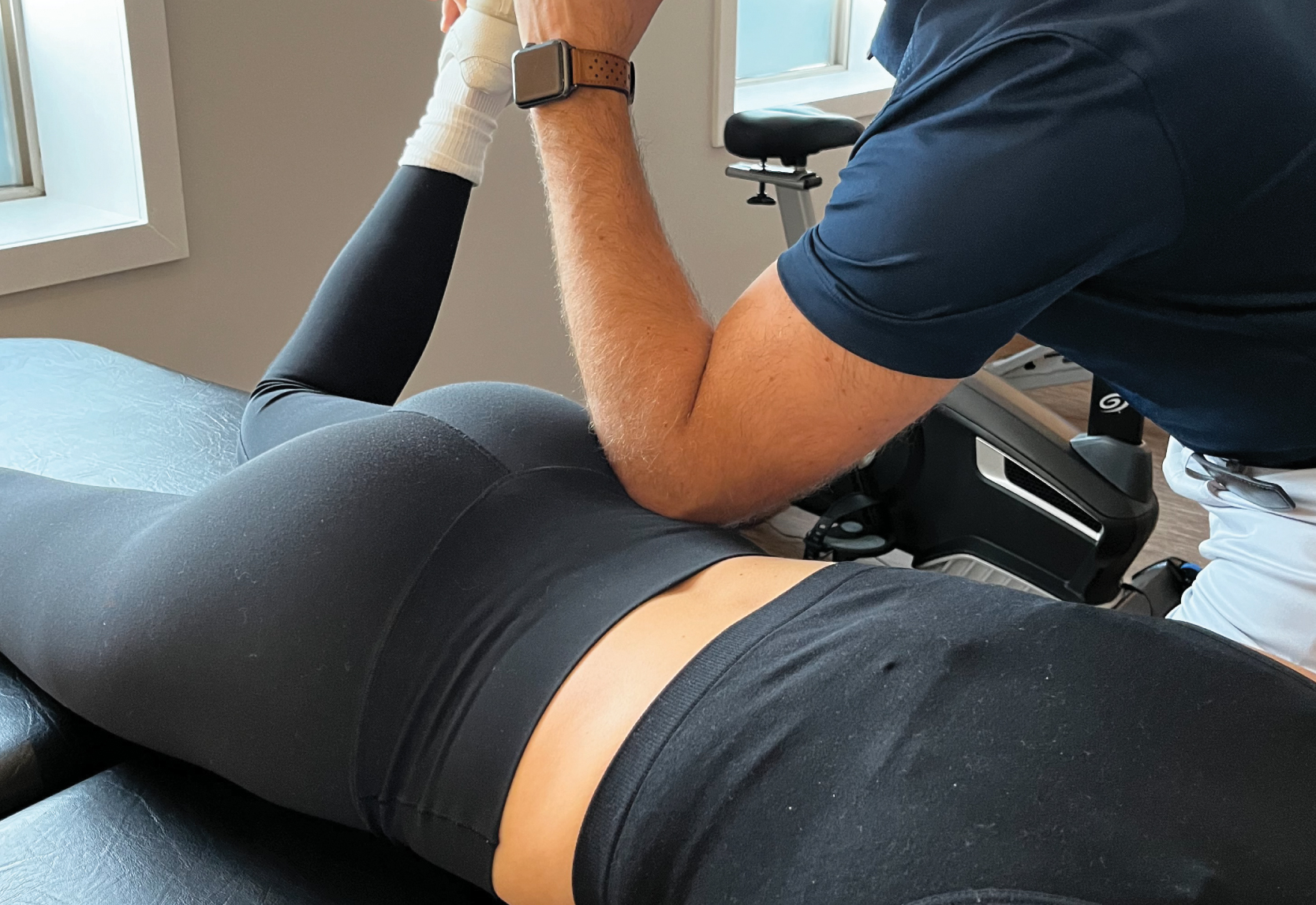Our Approach
Physiotherapy is a health care profession that uses an evidence based approach to managing disease, injury or disability. Working with a physiotherapist can help improve mobility and strength, reduce pain and assist you in meeting your personal goals. Okanagan Physiotherapy works with people of all ages and abilities.
We offer a variety of services including manual therapy, soft tissue release, IMS/dry needling, exercise prescription, taping, pain education, therapeutic ultrasound, electrotherapy and more.

Lower Back Pain
Why is my lower back hurting?
Lower back pain is one of the most common conditions seen by physiotherapists. Up to 80% of adults in North America will experience back pain at some point in their lives. There are a number of factors and causes of lower back pain that will be highlighted below.
Sciatica
Sciatica refers to pain that radiates along the path of the sciatic nerve, which is the longest nerve in your body. The sciatic nerve runs from the bottom of your back, into your hips and down the back of your leg. Sciatica pain typically affects only one side of your body.
The most common cause of sciatica is a herniated or slipped disc in the spine, which can compress or irritate the nerve roots that form the sciatic nerve. Other causes of sciatica include spinal stenosis, degenerative disc disease, spondylolisthesis or muscle imbalances.
Symptoms of sciatica can vary from bottom back pain to numbness, tingling and weakness down one leg. The pain can vary from mild to severe and often benefits from physiotherapy. Therapy for sciatica include medication, exercise and activity modification. Consult with Okanagan Physiotherapy in Penticton for an individualized treatment plan.
Degenerative Disc Disease
Degenerative Disc Disease is a condition that refers to natural wear and tear of the spinal discs over time. Spinal discs are soft, rubbery cushions between vertebrae that make up the spine. They act as shock absorbers providing flexibility and allowing the spine to bend and twist.
As people age the spinal discs undergo changes that contribute to degenerative disc disease. These changes may include loss of fluid, thinning of discs, tears or cracks, herniated or bulging discs.
While the term “degenerative disc disease” might sound severe, it is important to note that this is a normal part of the aging process. Not everyone with degenerative changes in their discs experience symptoms, and for many people it is asymptomatic. However, in some cases degenerative disc disease can lead to stiffness and back pain in the lower back or neck region.
Management of degenerative disc disease often involves conservative measures such as physical therapy, exercise, pain medication and lifestyle modifications. It is beneficial for individuals experiencing symptoms of degenerative disc disease to consult with a physiotherapist for an accurate diagnosis and treatment plan. Okanagan Physiotherapy in Penticton is here to help.
Mechanical Lower Back Pain
Mechanical lower back pain refers to pain that is primarily related to the way the spine, muscles and joints in the lower back region function and move. It is often described as a non-specific type of pain, meaning that it doesn’t necessary result from a specific condition but is more associated with the mechanics of movement and strain on the structures of the back.
Possible causes of mechanical lower back pain include muscle strains, ligament sprains, intervertebral disc degeneration, joint dysfunction, poor posture and muscle imbalances. Symptoms of lower back pain may include localized discomfort, stiffness and pain that may worsen with certain movements or activities.
Heat or cold therapy, over the counter pain medications and gentle exercises to improve strength and flexibility for lower back pain can all be effective forms of treatment. Physiotherapy is often recommended to improve muscle imbalances and provide specific exercises to alleviate symptoms.
Persistent or Severe Lower Back Pain
It is important to note that if your back pain is persistent or severe you should consult with a health care professional immediately to rule out other potential causes and determine the most appropriate course of treatment. For all your physiotherapy needs, please contact our Penticton location and book an assessment today.






